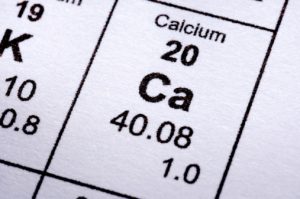 Calcium is required in the body as an essential mineral. Its main use is I the bones and teeth to keep them strong. But when an excess amount of calcium is found within the body it can lead to a condition called hypercalcemia. In this case, when there is too much calcium, it can play an opposite effect and actually make bones brittle, lead to kidney stones and negatively impact the heart and brain.
Calcium is required in the body as an essential mineral. Its main use is I the bones and teeth to keep them strong. But when an excess amount of calcium is found within the body it can lead to a condition called hypercalcemia. In this case, when there is too much calcium, it can play an opposite effect and actually make bones brittle, lead to kidney stones and negatively impact the heart and brain.
Causes of hypercalcemia
Advertisement
If you’re concerned that consuming an excess amount of dairy products will lead to hypercalcemia, this is not true. When calcium levels are low in the blood your body releases a hormone which causes your bones to release calcium, your digestive tract absorbs more calcium and the kidneys release less, but activate more vitamin D.
This imbalance of calcium can disrupt the body’s natural functions. And so causes of hypercalcemia are:
- Overactive parathyroid gland
- Cancer
- Diseases like tuberculosis
- Immobility – not moving over prolonged periods of time may lead to hypercalcemia
- Medications – for example medications to treat bipolar disorder
- Taking excessive calcium supplements
- Hereditary factors
- Dehydration.
Symptoms of hypercalcemia
Symptoms may not be apparent with hypercalcemia, or they can be quite mild. It’s important to take note of these symptoms to help determine if you have hypercalcemia or not.
- Kidneys will have to work harder to get rid of the excess calcium. This will lead to excessive thirst and urination.
- Stomach upset, nausea, vomiting and constipation.
- Bones may become painful and muscles may become weaker.
- Impaired cognitive function – confusion and fatigue.
Prevention techniques for hypercalcemia
Unfortunately, there are no fool-proof ways to prevent hypercalcemia, but being aware of your family history may help you seek out medical attention to check your calcium levels in your blood. Getting regular check-ups will help deter the severity of hypercalcemia because your doctor will be able to spot any changes to your health immediately. They may recommend a 24-hour urine collection to measure the level of calcium in your kidneys.
Another important note is to always speak to a doctor before taking calcium and vitamin D supplements. Your levels may be fine just they way they are so by overdosing on these supplements you can bring yourself to hypercalcemia.
Drink plenty of fluids, especially water. Drinking fluids can help keep you from dehydration and help prevent kidney stones from forming.
Exercise. Once your calcium levels return to normal, and if you’re otherwise healthy, it’s important to remain active to help maintain bone density.
Don’t smoke. Smoking has been shown to increase bone loss as well as dramatically increase your risk of a number of serious health problems.
Related Reading:
Why are calcium supplements now under fire?
Calcium is an essential mineral that is present in bones and teeth. Its also plays an important role in various cellular functions, assisting in the transport of molecules in and out of cells. Calcium also helps in muscle contraction, as well as in the control of nerve activity and excitability. Physicians generally prescribe calcium supplements to patients who have been diagnosed with excessive levels of excitability or irritation. Continue reading…
Advertisement
Is this bone disease affecting your hearing?
According to the International Osteoporosis Foundation one in three women over the age of 50 will develop osteoporosis – a disease categorized by bones becoming weak and brittle. While commonly referred to as a woman’s disease, men are not immune. In fact, within America alone, nearly two-million men have osteoporosis and another eight to 13 million have low bone density. Continue reading…
Sources:
http://www.mayoclinic.org/diseases-conditions/hypercalcemia/basics/symptoms/con-20031513
http://www.healthline.com/health/hypercalcemia#Treatments6
http://my.clevelandclinic.org/health/diseases_conditions/hic-hypercalcemia
http://www.nlm.nih.gov/medlineplus/ency/article/000365.htm
